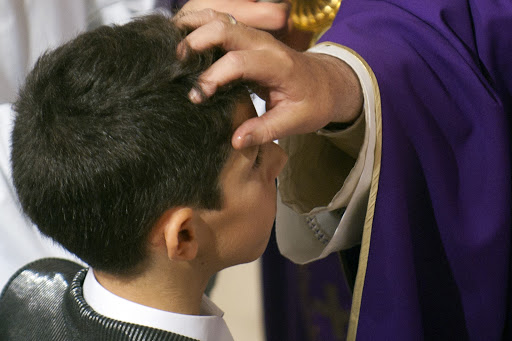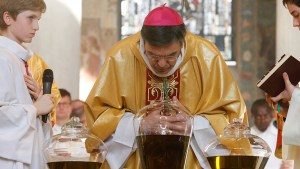Confirmation perfects baptismal grace in us, asking us to confirm it.
For this reason, it’s important to take care that our young people receive this sacrament and receive the power of the Holy Spirit.
Pope Francis
With Baptism, we become “new creations.” With Confirmation, the Spirit unites us more closely to Christ and the Church through His gifts of wisdom, understanding, counsel, fortitude, knowledge, piety, and fear of the Lord.
Without Confirmation, Baptism is still valid and efficacious, but Christian initiation remains incomplete.
A promise from of old
In the Old Testament the prophets said that the Holy Spirit would be given to the Messiah and to all the people of Israel.
The descent of the Spirit on Jesus after his Baptism in the Jordan indicated that He was the Messiah.
The apostles received the Spirit on Pentecost and from that moment on they laid their hands on the newly baptized to invoke the Spirit upon them.
The sacrament’s beginning
The Church identifies this gesture as the origin of the sacrament of Confirmation. This is why the celebrant of Confirmation is always the bishop or his delegate.
Until the 5th century, Confirmation was celebrated together with Baptism. As the tradition of baptizing infants became more popular, in the West the two sacraments
became separated. Confirmation was moved to the age of discernment, around the age of 12 or older.
This sacrament is called Confirmation because it confirms and strengthens baptismal grace.
It can also be called “Chrismation” derived from the word “chrism,” the oil used in this sacrament.
The heart of the sacrament is the anointing of confirmand on the forehead with the sacred chrism and the imposition of hands while reciting the form: Be sealed with the gift of the Holy Spirit.
Chrism is a perfumed oil which every bishop consecrates for his own diocese on Holy Thursday each year.
In the Old Testament, it was used to consecrate kings, priests, and prophets, but also the shields used to defend the people of God and the Tabernacle.
Today, chrism is used in Confirmation and the ordination of bishops, as well as to anoint the altar and walls when a church is consecrated.
Strengthened for battle
Confirmation also makes us “soldiers” of Jesus: the Spirit gives us special strength to bear witness to the faith.
This was symbolized by the ritual of the “slap,” a gesture taken from the military: prior to the liturgical reform (though some places still keep this tradition) the bishop would gently slap the cheek of the confirmandi, sending them into the world to “fight” for the faith.
Confirmation, like Baptism, imprints an indelible spiritual seal on a Christian’s soul; this is why we can only receive it once in our lifetime.




